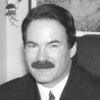If current trends continue, more than 90 percent of all scientists and engineers in the world will be living in Asia by 2010.”
“South Korea, with one-sixth of our population, graduates as many engineers as the United States.”
“More than 50 percent of all engineering doctoral degrees awarded by U.S. engineering schools are to foreign nationals.”
“Although U.S. fourth graders score well against international competition, they fall near the bottom or dead last by 12th grade in mathematics and science, respectively.”
These startling revelations are part of a recent report released by the Business Roundtable, an association of chief executive officers of leading U.S. corporations. Concerned our technological competitive edge will be seriously challenged by other countries, the Business Roundtable recommends attracting more students to the fields of math and science, building public support for math and science education, and finding ways to retain students in math and science curricula.
In our emerging knowledge economy, it’ll be tough for the U.S. to maintain a competitive edge if we continue to export our mathematics and science knowledge, while at the same time allow our emphasis on these areas to decline. Illinois Central College is involved in a few initiatives to help strengthen student performance in math and science, but it appears more should be done.
A recent recipient of the Thomas Endowed Teaching Chair and a 2005 40 Leader, math professor Pat Ward interviewed math teachers at high schools and elementary schools throughout our district as a research project. Pat is looking for ways to work with grade and high schools and other colleges and universities in our area to fortify math instruction. Key in this effort is identifying what skills students need for college-level work and helping students achieve them. Discussion among elementary-, high school-, and university-level instructors is a first step in achieving success.
ICC also offers programs like “Project Lead The Way,” designed to interest students in engineering careers before they reach college. “Project Lead The Way” is part of a national effort involving private partnerships between schools, colleges, and universities and business and industry to increase the quality and number of engineering professionals. It’s designed to introduce students to the scope, rigor, and discipline of engineering careers.
To bolster math skills of current students, the college also provides a math help lab and refresher math courses that help students build their skills. Today, some parents are enrolling their junior and senior high school students in ICC math courses to supplement and enrich their skills before these students move on to college. In addition to the potential for these courses to transfer to the university, taking ICC math courses provides high school students with another way to fortify math abilities.
The decline of math and science skills in America poses a frightening threat to our country’s ability to compete. As we plan the future of education in America, it’s time we take a serious look at how we can do more in math and science. IBI

